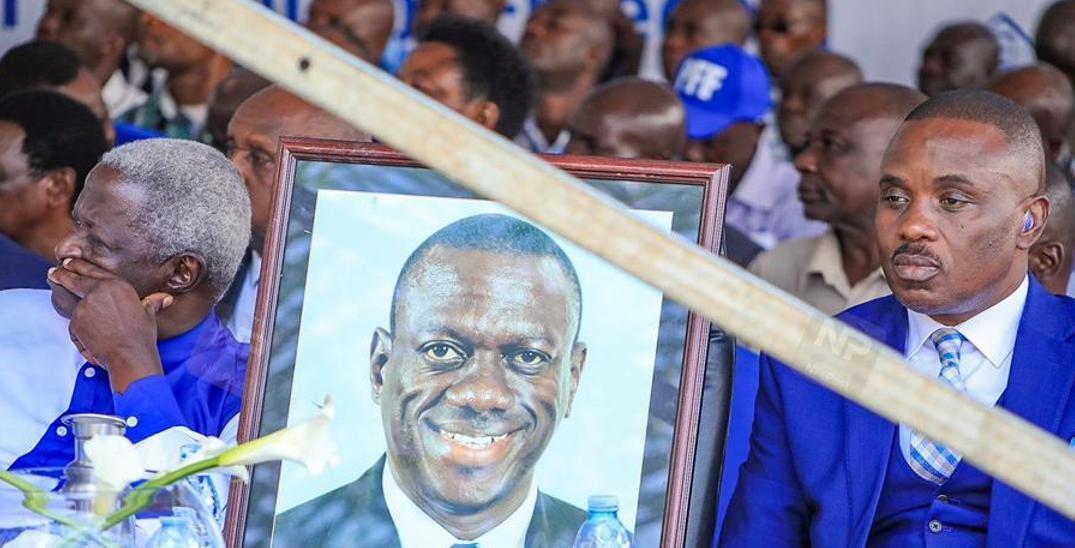Africa-Press – Uganda. Opposition figure and four-time presidential challenger Kizza Besigye has formally stepped aside from frontline leadership of the People’s Front for Freedom (PFF), handing the reins to Kampala Lord Mayor Erias Lukwago.
The leadership transition, announced during the coalition’s first National Convention, marks a strategic recalibration rather than a retreat, with Besigye retaining a powerful advisory role.
Lukwago, a long-time ally and protégé of Besigye, will now serve as National Executive Chairperson of the PFF, deputised by Buikwe South politician Dr Michael Lulume Bayiga.
Kira Municipality MP Ibrahim Ssemujju Nganda has been named Secretary General.
The new appointments reflect a generational refresh of the leadership while maintaining continuity with Besigye’s combative political legacy.
Although currently incarcerated and unable to attend the convention in person, Besigye’s presence was unmistakably felt.
A framed portrait of him occupied a chair at the high-table, underscoring his enduring status as the symbolic figurehead of Uganda’s opposition struggle. He now heads the Council of Eminent Persons, the PFF’s top advisory body.
Besigye’s decision not to seek any elective office within the PFF is consistent with his longstanding rejection of Uganda’s electoral system, which he has described as structurally rigged. After the disputed 2016 elections — the results of which were declared while he was under house arrest — Besigye vowed never again to participate in what he called a “sham process.”
He upheld that position in 2021, sitting out the presidential race and instead focusing on civic defiance and grassroots mobilisation.
The PFF was born from the ashes of internal strife within the Forum for Democratic Change (FDC), which fractured after disputes over alleged financial mismanagement and accusations of infiltration by state operatives.
Besigye’s breakaway Katonga group formed the ideological nucleus of the new front, aiming to reorient opposition strategy toward mass mobilisation and regime change through pressure, rather than elections alone.
Now, with Lukwago at the helm, the PFF faces the challenge of translating Besigye’s radical vision into structured political action.
In his inaugural speech, Lukwago pledged to “carry the torch of freedom” and preserve the legacy of his predecessor while galvanising Ugandans toward democratic transformation.
“This isn’t a handover of power,” one PFF delegate remarked off-record. “It’s a multiplication of it. Besigye hasn’t stepped down — he’s stepped back to amplify the movement.”
As the PFF charts its course amid state repression and opposition fragmentation, Besigye’s shadow continues to define its direction.
His withdrawal from elective office may be tactical, but his imprint on Uganda’s evolving opposition politics remains deeply etched — in principle, in strategy, and now, in the party’s institutional DNA.
For More News And Analysis About Uganda Follow Africa-Press






